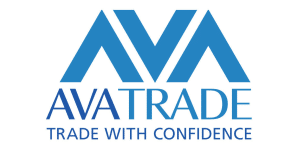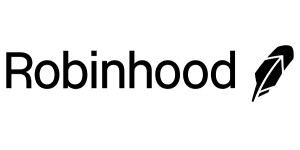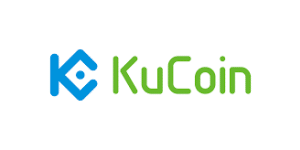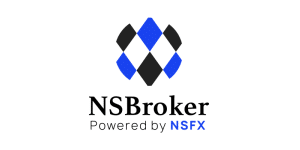Cryptocurrency trading apps are a must if you want the freedom to trade at any time, anywhere. Most apps are mobile versions of larger trading exchanges, and some are even offered by third parties.
There is no one size fits all and finding an app to suit your needs can be challenging.
That’s where we come in. We struggled with finding the right app and then, trying to figure out how they worked.
Here we share our knowledge on the best crypto trading apps of 2023 so that you can make an informed decision.
Best Cryptocurrency Trading Apps 2023
When compiling this list, we considered the features, fees, customer support, and the range of currencies they offered.
Here is our selection…
- eToro
- AvaTrade
- IQ Option
- Robinhood
- Kucoin
- Gemini
- Binance
- Coinbase
- NSBroker
- YouHodler
eToro
eToro launched in 2007. It is both a crypto exchange and a trading platform.
What makes eToro great is that when you invest in cryptocurrencies, you keep 100% ownership. A drawback is that you can’t withdraw your coins and hold them in a wallet.
eToro does let you trade cryptocurrency pairs like crypto-fiat and crypto-crypto. It supports major digital currencies like Ethereum, Ripple, EOS, and Bitcoin.
With eToro you can easily make deposits via bank transfers, PayPal, SEPA, and NETELLER.
We would recommend this app to both beginners and advanced traders.

| PROS | CONS |
|---|---|
| User-friendly app | Unable to deposit cryptocurrency |
| Trusted exchange | |
| Low fees |
Cryptoassets are unregulated in some EU countries and the UK. No consumer protection. Your capital is at risk.
AvaTrade
AvaTrade is a renowned global trade exchange. It was founded in 2006. AvaTrade is also highly regulated, making it a safe and secure broker.
They have a vast selection of trading platform options.
Their mobile app is quite competitive and they are in line with industry standards. Opening an account is also super easy and fully digital. AvaTrade offers numerous methods of deposits and withdrawals that are completely free.
A downside of this app is that its product portfolio is limited. If you are an advanced trader with a diverse profile this is not the app for you.
We would recommend it to beginners and casual traders.

| PROS | CONS |
|---|---|
| Multiple free deposits and withdrawals | Phone support |
| Low trading fees | Admin fee |
| Easy account opening | Inactivity fee |
| Amazing educational tools | Limited research tools |
IQ Option
IQ Option is a reputable exchange platform that is regulated by CYSEC. The platform is intuitive and user-friendly.
Their mobile app is free to download and specifically caters to smartphones and mobile devices. While it does not have all the features on the web-based platform it does allow users to check their portfolios and account status.
It also lets you keep up to date with market trends and trade.

| PROS | CONS |
|---|---|
| Amazing interface | Slow customer support |
| Regulated by CySec | Not available worldwide |
| Quicky and easy account opening | |
| Low minimum deposits |
Robinhood
Robinhood stands out among the crowd because it offers commission-free crypto trading. It was one of the first exchange platforms that were commission-free but recently, more exchanges are following the trend.
Robinhood offers a web-based and mobile trading platform. A drawback with both is that they are pretty minimal and lack features that other platforms offer.
Robinhood also has a reputation for having irritating trade restrictions.
We would not recommend this app to advanced or active traders. If you’re a beginner this app is a good place to find your feet.

| PROS | CONS |
|---|---|
| No account minimum required | Does not offer retirement accounts |
| User-friendly interface | Limited customer support |
Kucoin
KuCoin is a top cryptocurrency trading platform. It managed to make a name for itself as being the one-stop platform for all cryptocurrency trading.
What makes it stand out is its impressive portfolio of cryptocurrency services. Kucoin offers fiat onramp, a P2P marketplace, non-custodial trading, passive income services, and futures and margins on exchanges. They also offer an IEO launchpad that can be used for crypto crowdfunding.
Kucoin has over 200 digital currencies and more than 400 markets. With Kucoin you can buy cryptocurrencies with your credit or debit card and instant-exchange services.
It offers low, competitive fees so you can invest without breaking the bank.
We would recommend KuCoin for advanced, active traders.

| PROS | CONS |
|---|---|
| Low trading and withdrawal fees | Does not support bank deposits |
| Easy-to-use exchange | Does not offer fiat trading pairs |
| 24/7 customer service | |
| Buy crypto with fiat |
Gemini
Gemini is a licensed US-based cryptocurrency trading exchange. Being licensed means that Gemini is regulated by similar standards to a US bank. This is great because it gives traders a sense of safety and security.
A downside of this cryptocurrency platform is that it only trades in three currencies, bitcoin, the US dollar, and ether. This platform is not available worldwide.
It makes up for this by having free deposits and withdrawals. They also offer discounted rates for active, high-volume traders.

| PROS | CONS |
|---|---|
| Amazing security measures | Limited currencies |
| Minimalistic interface and design | Customer support |
| User-friendly platform | Not available worldwide |
| Reputable cryptocurrency exchanges |
Binance
Binance is a well-known cryptocurrency exchange platform. It is known for having the largest trading volumes worldwide.
Their app is available for both Android and iOS. It’s also free to download.
Similarly to eToro, with Binance you will have one central account that you can use to access all of their platforms.
One of the best things about Binance is that it offers a massive amount of cryptocurrency pairs. You will be able to access any digital currency you want to invest in, at any time.

| PROS | CONS |
|---|---|
| Platform token | Limited payment options |
| Affordable transaction fees | Does not offer fiat trading |
| Available Worldwide |
Coinbase
Coinbase is one of the world’s largest Bitcoin brokers. Along with Bitcoin, they also offer litecoin and ethereum among others. They currently offer 22 different digital currencies for you to buy, sell, and trade.
Coinbase allows you to buy cryptocurrency via your debit card, a bank transfer, or SEPA transfer.
Their platforms are known for being easy to use and perfect for beginners. You won’t need much experience to get the hang of their simple interface.
What makes Coinbase great is that you can buy cryptocurrencies in the traditional sense. This means that you will keep 100% ownership.
Coinbase also lets you withdraw your coins into a private wallet if you want to store them.

| PROS | CONS |
|---|---|
| High liquidity rates | Long wait period for purchases made via bank transfers |
| Good for beginners | Coinbase does track how and when you use your coins. |
| Easy-to-use interface | |
| ‘Instant buy’ option for debit cards |
NSBroker
NSBroker is a cryptocurrency trading platform that focuses on trading digital currencies in the form of CFDs. NSBroker lets you trade coins at only 0.5% against the dollar in commissions.
These commissions are charged per slide. What this means is that you will be charged when you open a crypto CFD position and when you close it.
NSBroker also gives you the option to leverage at a 1:2 rate in its cryptocurrency exchange.
A downside of this cryptocurrency platform is that it only allows you to access five digital currencies. These are Bitcoin, Bitcoin Cash, Ripple, Litecoin, and Ethereum.
If you’re a trader with a broad portfolio, NSBroker also offers additional products like Forex.

| PROS | CONS |
|---|---|
| Advanced platform | Low leverage |
| Real-time market execution | Not a large variety of accounts |
YouHodler
YouHodler is known for its vast range of cryptocurrency-based products. One of their services is that they offer their wallet app which allows you to store and trade coins in one convenient place.
What makes this so great is that while your coins are stored, YouHodler lets you earn interest on those holdings. Depending on the digital currency you have stored and for how long you store them, you could earn up to 12% interest on those holdings per year.
This feature sold us on the app and the platform.
With YouHodler, you can also obtain cryptocurrency loans of up to 90% of the coins you deposit.
YouHodler also offers a Multi Hodl feature for digital currency margin trading.

| PROS | CONS |
|---|---|
| Earn interest on holdings | This platform isn’t available in the US |
| A wallet included with the mobile app | High fees on loans |
| Large range of cryptocurrency-based products | App glitches on Android devices |
What are Cryptocurrency and Blockchain?
In simple terms, cryptocurrency is a digital currency. Cryptocurrency would not be able to exist without Blockchain technology.
Blockchain technology is a decentralized ledger of every transaction over peer-to-peer networks. This allows traders to confirm their transactions without a central clearing authority.
Blockchain can be used for settling trades and funding transfers. This technology is also helpful for business transactions.
Blockchain improves business processes between companies and has the potential to give higher returns for investments than traditional internal investments.
Cryptocurrency exchanges are similar to trade exchanges where you can buy, sell, and trade digital currencies online. Cryptocurrency exchanges also allow you to exchange digital currencies with traditional currencies.
What are they?
A trading app is a mobile exchange app. It gives you the freedom to manage your portfolio from anywhere at any time. Whether you’re an active trader or beginner, it is useful to have a mobile cryptocurrency app.
Mobile apps are generally easier to set up and are more user-friendly than web or desktop platforms. These apps let you buy and sell digital currencies and connect to your bank account or credit card.
Larger cryptocurrency exchanges might not let you buy cryptocurrencies and instead will focus on exchanges between cryptocurrencies.
Generally, there are four kinds of cryptocurrency apps. Depending on your needs, you might want to use one or more of the below.
Wallets
A crypto wallet acts as a storage for your digital currencies. With this app, you can’t buy or sell cryptos. Wallets focus on security to keep your coins safe which is useful if you plan on saving your coins.
We recommend you check out some wallets and have them as an addition to your main cryptocurrency app.
When choosing your wallet make sure to choose one that is designed to hold the currencies you plan to trade.
News
A news app is vital if you’re a serious trader. Unlike traditional trades, cryptocurrency exchanges are open 24/7. Keeping up with the news is important if you want to stay in the loop.
Choose a news app that keeps up with both major and minor digital currencies.
Trackers
The cryptocurrency tracker is an app that gives you real-time information on cryptocurrency prices.
This isn’t a required app since most exchanges should have this information as well. But, it can be useful if you want to store your coins on a hard exterior wallet and still want to keep up with the pricing.
How To Pick One?
Choosing a trading app for trading cryptocurrency can be overwhelming, especially if you’re a beginner. Here are a few things to consider before choosing one.
Regulation
One of the key things to consider when choosing a cryptocurrency trading platform is where or not the platform is regulated by a government or financial institution.
Most cryptocurrency brokers are heavily regulated by institutions like CYSEC or ASIC.
But, it is still common for some platforms to operate unregulated so this is something to keep in mind.
Security
Checking out the security features and technology is also very important. Most apps have a two-step log-in and verification system to prevent fraud. There should also be security measures in place to prevent hacking and protect your holdings.
Leverage Available:
If you’re a serious, active trader you should check whether the platform you choose offers any leveraging features. This is useful if you want to buy large amounts of crypto but unable to come up with the cash for it.
A fair warning, some platforms might charge additional fees for this service.
Does it Offer Copy Trading?
Again, another feature for active traders is copy trading. Simply put this method means that you let someone else develop a trading strategy for you. You can do this by copying the trades they make in real-time.
This can also be done automatically.
If this is something that interests you, make sure the platform you choose offers this function.
Functions
Whether you’re a newbie or an experienced trader, checking out the functions a platform offers is important. Features like spreads, real-time news data, and watch lists, as well as a portfolio tracker, are vital.
The features can help you with planning your trade strategy and deciding which currencies to buy, sell, or trade.
Ease Of Use
If you’re a newbie, this is a very attractive feature. Having an app that is attractive and easy to navigate makes trading easier and more enjoyable.
Limits and Liquidity of the Exchange
This is another important thing to consider. If you’re an active trader you should check if the platform has limitations on trade volume and, if going over these limits comes at an additional cost.
The liquidity of the exchange is also an important issue to check out. Just how easy is it to liquidate your holdings? How long can it take? And are there extra costs attached?
Cryptocurrencies Available
If you’re an active trader with a board portfolio you might want a platform that has a large range of crypto available. This feature might not be as important if you’re a casual trader who wants to focus on one or two cryptos at a time.
Execution Speeds
The execution speeds of transactions might be something you want to consider. Just how long does it take for a transaction to complete? This will vary from platform to platform so do your research and find a platform that suits you.
High volume, active traders might prefer a platform with fast execution speeds.
Does it Offer a Crypto Wallet?
While this feature isn’t a necessity, having an app that has a crypto wallet can make trading more convenient.
This will make storing and trading crypto easier. It will also be simpler to work with one app instead of many.
Order Types
You should also check out the order types offered by the cryptocurrency trading platforms. The order types offered varies from platform to platform. The order types offered can also affect your trade strategy so it is important to make sure the platform you choose accommodates your strategy.
Watch Out For Ponzi Schemes
With the boom of cryptocurrency, many people have been scammed by Ponzi schemes. These schemes convince people to invest in them and then steal the funds.
It should be easy to vet the cryptocurrency trading platforms by checking their reputation and whether they’re regulated or not.
Account Minimums
You should check if the platform you choose has any account minimums. This varies from platform to platform.
Is it Available in Your Country?
Cryptocurrency trading platforms might have specific features that are only available in certain countries. Some platforms aren’t available globally. Make sure that the platform you choose is fully available in your country.
Fees & Commissions
You should be able to check the fees and commission information on the platform website. Make sure you familiarize yourself with the costs and rates, like deposits, transaction fees, and withdrawal fees before you sign up.
Fees and commissions vary from platform to platform.
Device compatibility
When choosing a platform, make sure that they offer a mobile app. This is important if you have a hectic lifestyle and want to trade anywhere at any time. It is also important to make sure that the mobile app is compatible with your cellphone or mobile device.
Education & Research for Traders
This feature is so important. Educational content is a must for newbies who are finding their feet. It makes navigating the world of trade much easier.
Research content is also very important for developing trade strategies and keeping up with market fluctuations.
Do They Offer Demo Accounts?
Demo accounts are great for checking out a crypto trading platform and app without having to commit. With a demo account, you can check out the features and useability of an app without the risk of the actual trade.
This option is great for beginners.
Deposit Methods
This is another important feature. Make sure that the platform you choose accepts a deposit method that you’re comfortable with. Common methods of deposit are via bank transfers, debit or credit cards, and sometimes via PayPal.
Customer Support
Finding a platform with good customer support is vital. Customer support options can be via live chat, email, or phone call. Most platforms should offer this service.
It is also useful to check out the response rate of customer support.
How To Start Trading Crypto
To make things easier for our newbie traders out there, here is a step-by-step guide on how to get started:
Step 1: Choose a cryptocurrency broker
This step is probably the most intimidating one. Choosing a crypto broker can seem overwhelming. It is important to list your needs. What do you want out of a broker? Which features are important to you?
Narrow your search by reading our reviews.
Step 2: Create an account
Generally, cryptocurrency platforms need you to provide your personal identification information like a social security number, address, and email address.
The duration and difficulty of this process will vary from platform to platform.
Step 3: Deposit your funds
Once your account has been activated you’ll need to connect your bank account.
Common methods of transferring funds are via debit or credit card, or via a bank transfer. These methods and the fees attached to them vary from platform to platform.
Step 4: Choose a digital currency to invest in
This step needs some thought and research. Choosing the right cryptocurrency to invest in can be an important step.
We advise that you do your research before making a decision.
It is also important to make sure that the cryptocurrency broker you’ve chosen offers the digital currency you want to invest in.
Step 5: Pick a strategy
There are plenty of trading indicators to choose from. There are multiple things to consider when buying, selling, and trading. That’s why it is important to educate yourself, especially if you’re a beginner.
Read up on different trading strategies and pick the one that suits you best.
Step 6: Store your coins (if you want)
If you’re an active trader, you should consider storing your coins or funds on an exchange so that you can easily access them. Depending on how long you want to store your coins, you might consider using a cryptocurrency wallet.
There are software and hardware wallets. While both offer security, we would recommend investing in a hardware wallet since it is more secure than a software wallet.
Types Of Crypto Exchanges
There are numerous ways to trade cryptocurrencies. Here are the most common methods:
Fiat-to-Crypto Exchanges
Fiat-to-crypto exchanges are how new traders enter the world of cryptocurrency trade. If you’re a beginner, chances are that you’ll need to use a fiat-to-crypto exchange to start.
Fiat-to-crypto exchanges let you buy cryptocurrency using fiat money like pounds or dollars.
In simple terms, Fiat-to-crypto exchanges are a means of buying digital currency using traditional payment like using a credit card, your bank account via transfers, or cash.
Crypto-to-Crypto Exchanges
Unlike fiat-to-crypto exchanges, crypto-to-crypto exchanges exclude the use of traditional payment. Instead, you will need to deposit your cryptocurrency first, and then you will be able to trade these for altcoins.
In simple terms, you are exchanging your coins (commonly done with bitcoin) for a different digital currency.
Custodial vs Non-Custodial Exchanges
Custodial and non-custodial exchanges are another way of handling custody and deposits.
With custodial exchanges, you will need to deposit fiat or cryptocurrency into your account and use this deposit to make a trade. Once the trade is made, your preferred exchange holds on to your coins or traditional currency until you decide to make a withdrawal request.
It is important to note that with custodial exchanges you run a higher risk of losing money than if you did a non-custodial exchange. This is because the exchange holds on to your coins or fiat for long periods.
With non-custodial exchanges, you give the exchange a crypto address before buying or selling. Once the transaction is made, you can send fiat or crypto on the exchange. After the funds reach the exchange, the transaction is finished and the new funds are transferred to the receiving address provided.
A benefit of using this method is that if the transaction is being scammed, you will be alerted to it and the deposits made will be stopped.
Non-custodial exchanges are less regulated than custodial exchanges because of this.
Generally speaking, it is safer to use non-custodial exchanges.